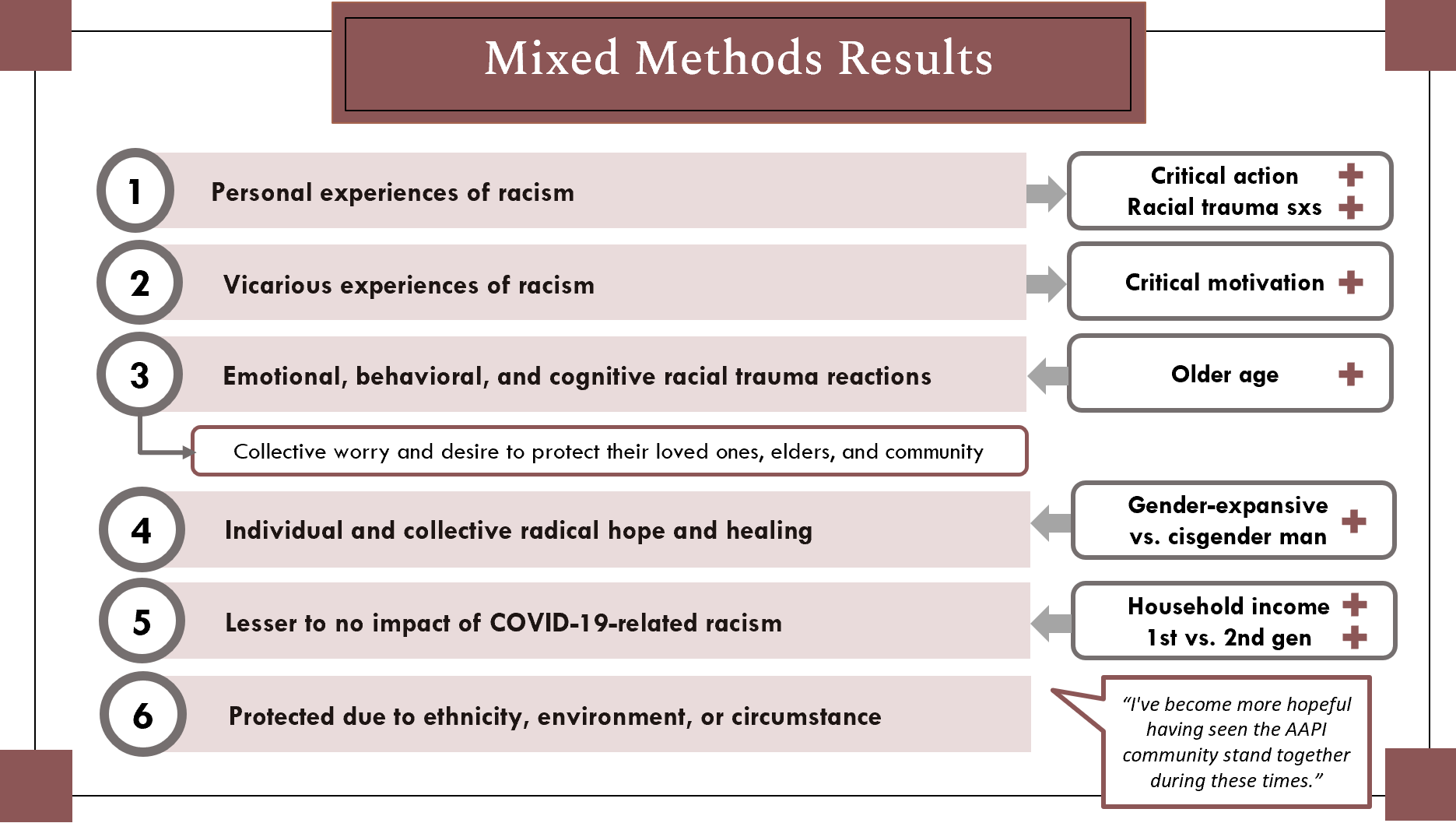How were AANHPIs impacted by COVID-19-related racism?
As part of the AANHPI HEART Study (PI: Wendy Chu, MA; Co-PI: Andrea Ng, MA), we asked 459 AANHPIs how they were impacted by COVID-19-related racism. Guided by the Radical Healing Framework, I led a study identifying themes from their responses and looked at whether certain themes were related to sociodemographic and cultural factors, critical consciousness, and racial trauma.
Overall, we saw that the impact of COVID-19-related racism on AANHPIs was varied, complex, and experienced on a collective level where trauma responses not only involved the self, but also individuals’ loved ones and communities. Chilling reports of traumatic experiences were also accompanied by inspiring expressions of radical hope and healing. We further found that AANHPIs in our study who described personally experiencing racism were higher on racial trauma symptoms and critical action, while those describing vicarious racism (i.e., through their loved ones, community, or the news/media) were higher on critical motivation. These findings suggest that experiences of COVID-19-related racism may have galvanized AANHPIs towards sociopolitical action to combat racism. To the extent that racial trauma was experienced collectively, individuals may have also been pulled towards collective action and community healing.
Our work highlights the urgent need for research centering community-driven, holistic ways of healing to improve policies and programs that support AANHPIs on the collective level, especially where racial stress and trauma is experienced collectively.
See below for a snapshot of our results (Draft version, 8/22/24. This paper has not been peer reviewed). Manuscripts are currently underway!
